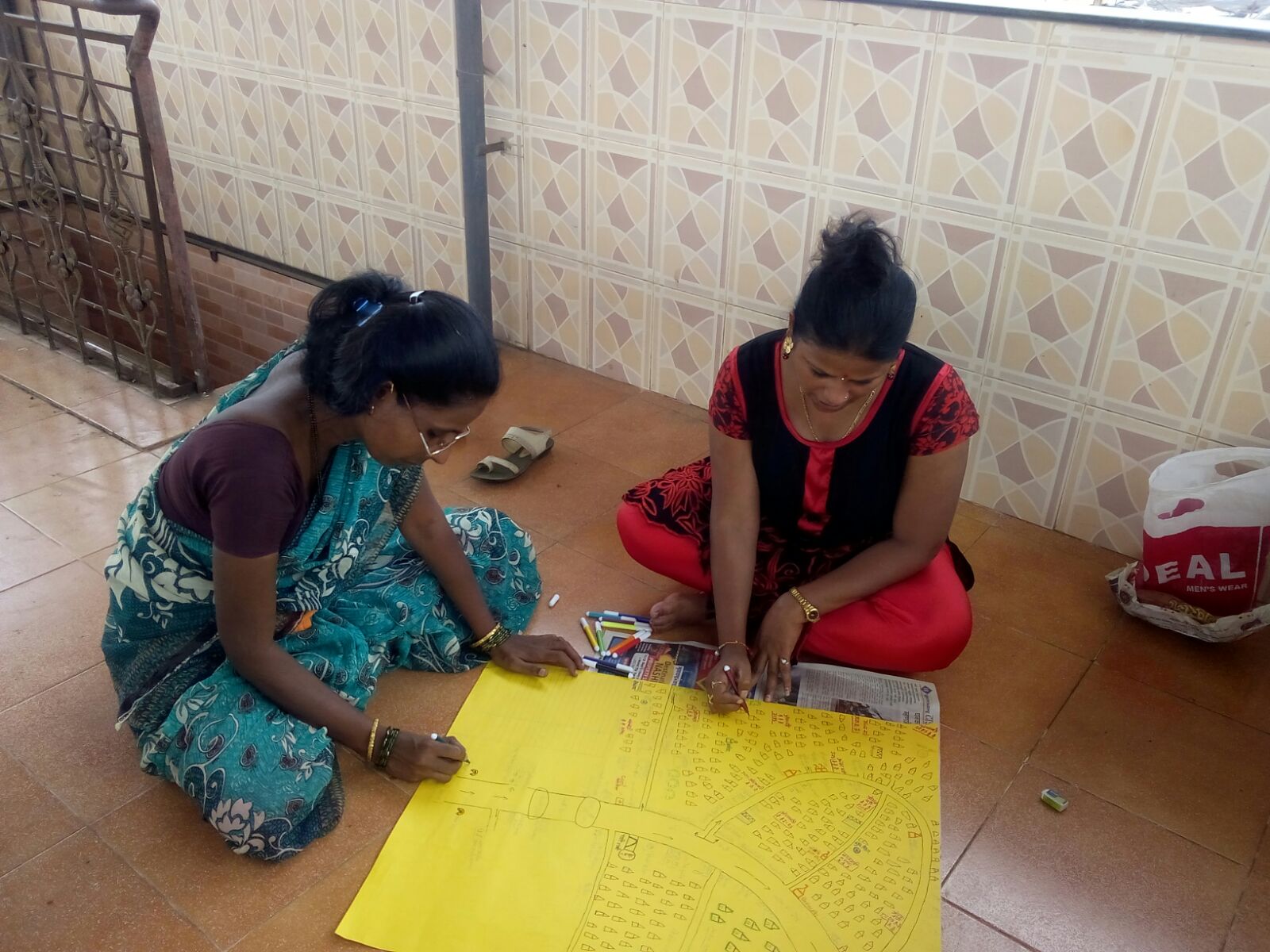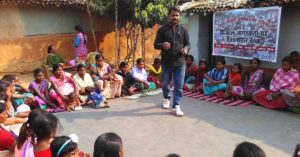TBI Blogs: How a Unique Initiative Is Bringing Free Healthcare to the Doorsteps of Mumbai’s Underprivileged
Many urban and peri-urban communities in India lack access to adequate healthcare services. Recognising this unmet need, an initiative in Mumbai is bringing healthcare right to the doorsteps of these communities, free-of-charge.
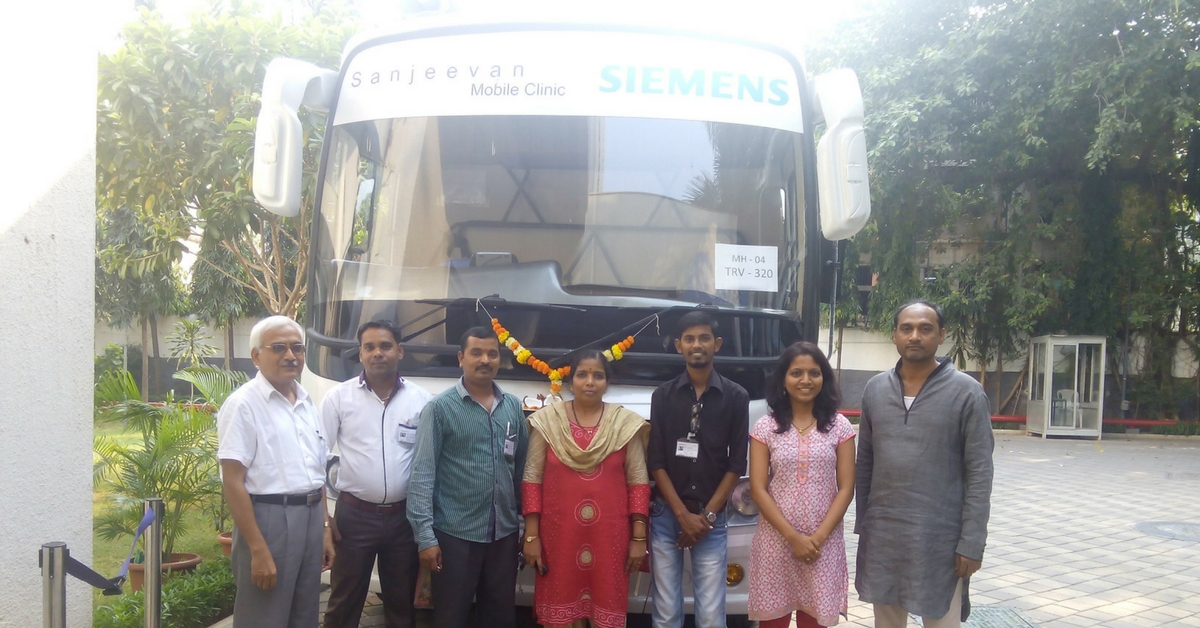
Many urban and peri-urban communities in India lack access to adequate healthcare services. Recognising this unmet need, an initiative in Mumbai is bringing healthcare right to the doorsteps of these communities, free-of-charge.
A middle-aged man—let’s call him Raju—living in an informal settlement in Kalyan, a suburb near Mumbai, had been suffering from acute knee pain for two years. Visits to both private and public healthcare centres were of no use. The pain had gotten so severe that he was unable to sit or even use the toilet.
One day, Raju noticed a mobile van coming to his community and treating people with various illnesses. He decided to approach the van and meet the doctor regarding his knee. The doctor performed an X-ray scan in the van itself, and treated him for knee inflammation caused by an infection. Raju recovered within two weeks.
The quick diagnosis and treatment—all free-of-charge, literally at his doorstop—were a big boon to him.
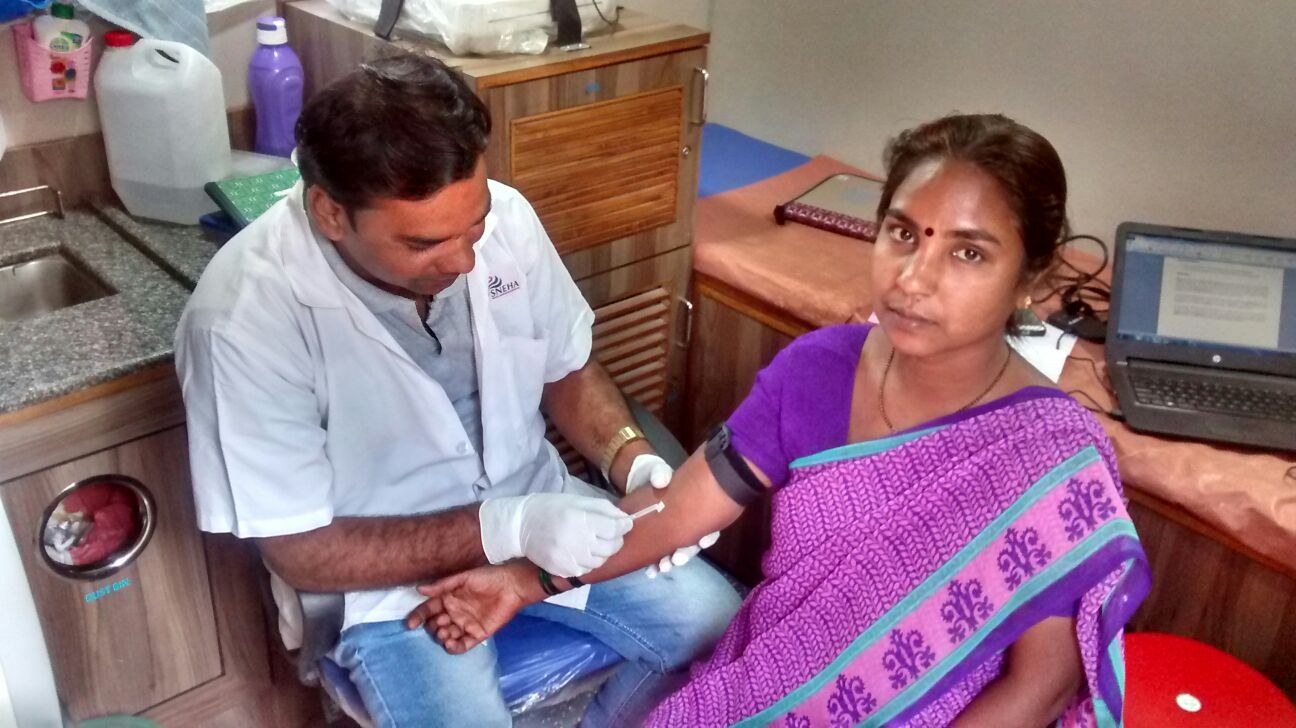
On the heels of the announcement of India’s National Health Policy 2017, there have been many voices asking for primary healthcare to be strengthened in the country. Indeed, with changing population dynamics, health needs, and complex environmental and social factors such as urbanization and climate change, it is more important than ever that our health systems respond to these demands.
In 2014-15, Society for Nutrition, Education and Health Action (SNEHA), a Mumbai-based non-profit working on preventive and promotive healthcare among vulnerable communities, did a needs-assessment study on health in the Kalyan-Dombivali region near Mumbai. The study revealed that certain vulnerable pockets in the region lacked access to quality primary healthcare services.
This included unaffordable diagnostic services, increasing out-of-pocket expenses on treatment of communicable diseases, far-away public health facilities, and over and above this, lack of awareness on several health-related issues.
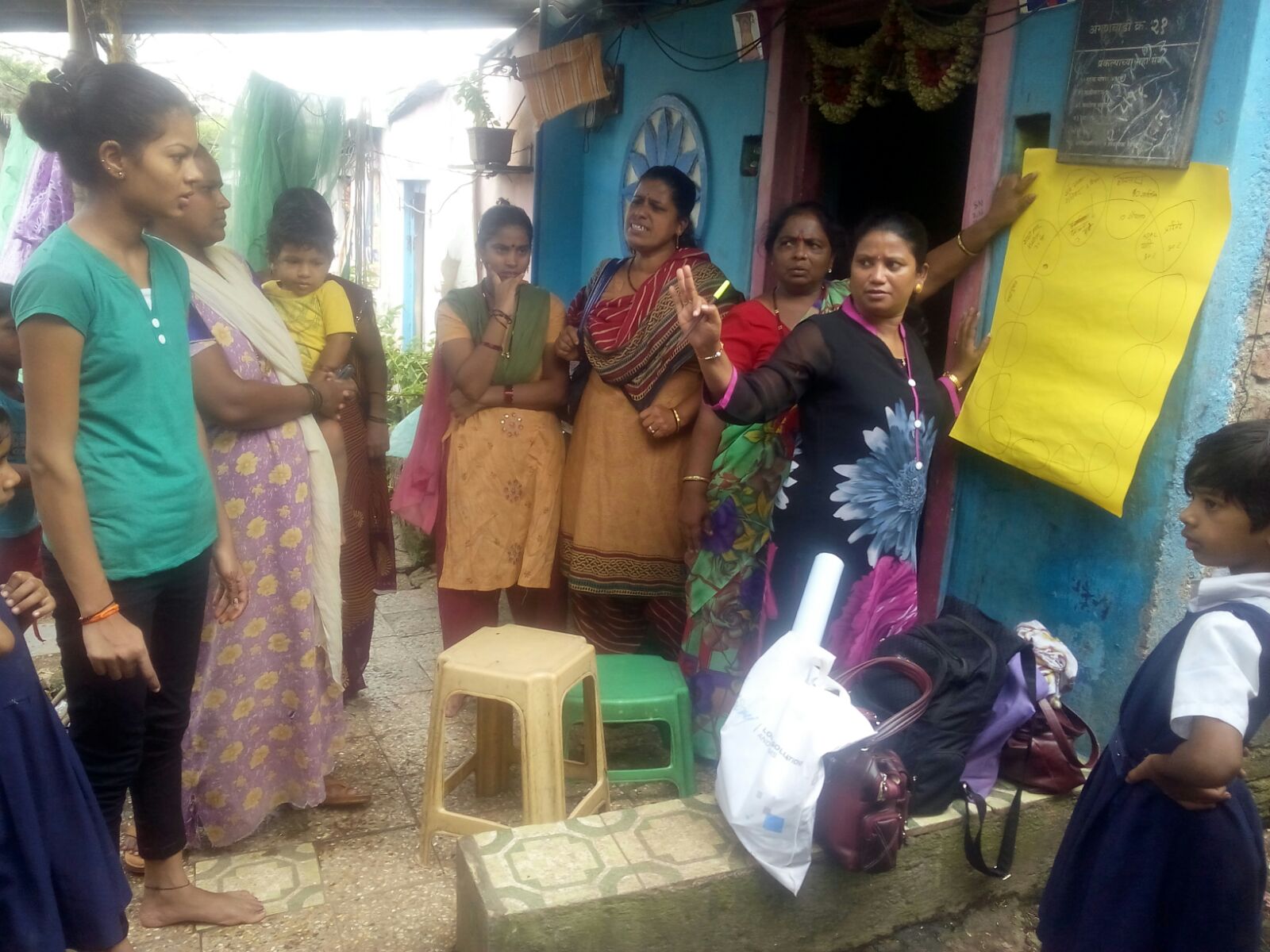
SNEHA, with support from Siemens India, began implementing a mobile health clinic project, called ‘Sanjeevan’, in November 2015. It identified the most vulnerable pockets in the Kalyan-Dombivali Municipal Corporation region, and began a van service that would run in these communities, offering free preventive, promotive, and curative healthcare, including referrals and follow-up services.
“Through our micro-planning exercise, we plotted the most vulnerable communities in detail, and came to know that there is a vast lacunae in terms of the number of accessible health posts and facilities in the region,” says Kanchan Jagdhane, Program Coordinator of ‘Sanjeevan’.
The van currently visits 10 areas of the Municipality, servicing communities with a majority of migrants, including daily wage labourers, construction workers, vendors, etc.
The mobile clinic has a doctor, nurse, X-ray technician, administrator, and cleaner. The van also has basic X-ray and screening facilities which administer urine and blood tests, and provide diagnostic services, medical examinations, and medicine, with the underlying objective of improving quality of primary healthcare services in the region. Sanjeevan mobile clinic also employs a cadre of healthcare workers, known as Community Organisers, who go out to the community and generate demand for healthcare among community members.
“We conduct awareness sessions on antenatal care, postnatal care, nutrition, family planning, tuberculosis, malaria, dengue, diabetes, and diarrhea. We also use street plays to communicate information about health issues. This helps us generate demand for care and treatment from the community, and to offer preventive health education for the most common illnesses,” states Kanchan.
Sanjeevan mobile health clinic uses state-of-the-art patient management software to document and track cases. Medicines and treatments are prescribed, and in complicated cases, referrals and end-to-end follow-ups are conducted.
Referrals are largely sent to public hospitals.
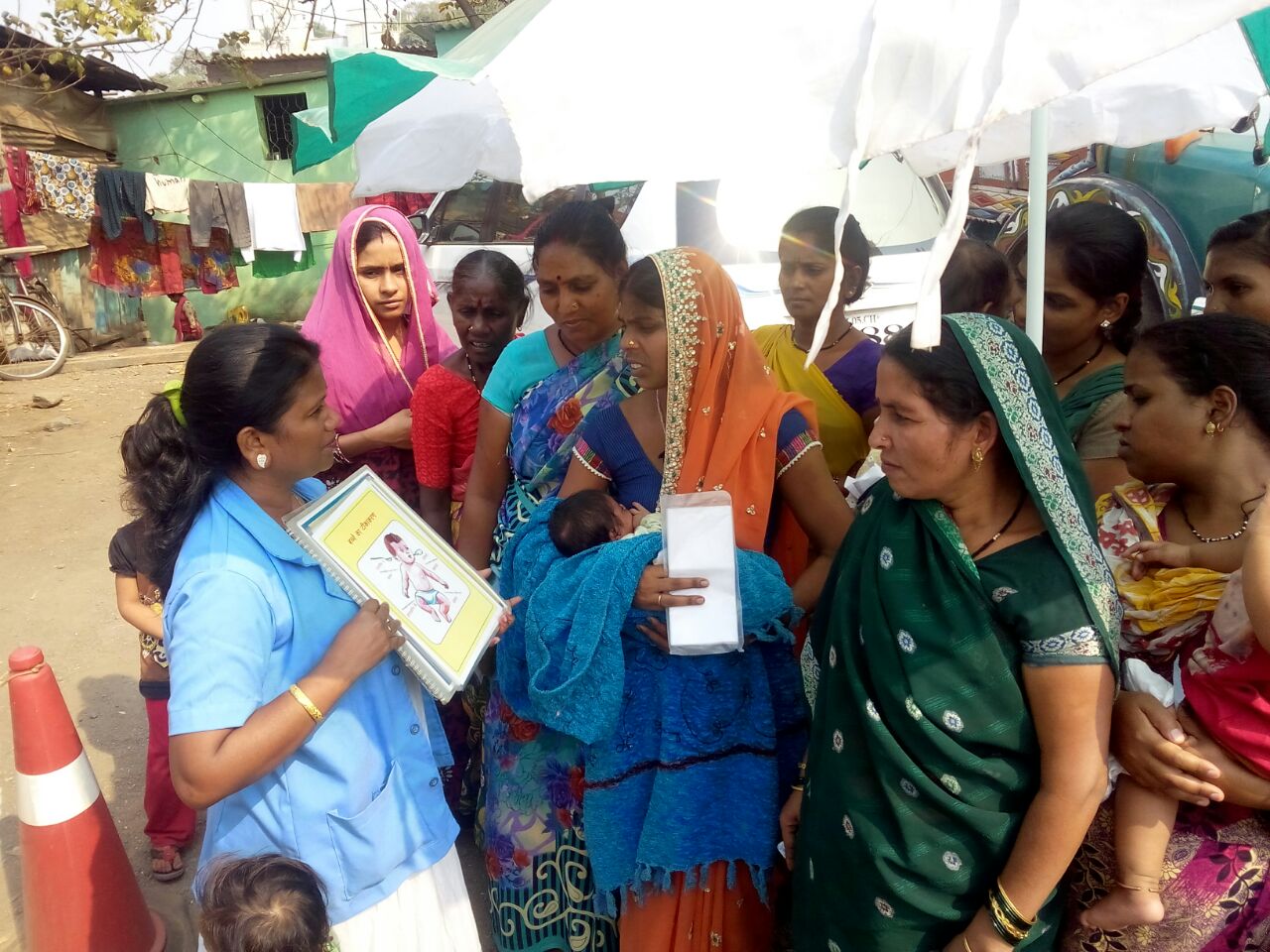
A 56-year-old female resident of Dombivali once visited the van complaining of swollen lymph nodes near her lips. While recording her medical history, the doctor learned that she had a history of consuming tobacco, and he referred her to a nearby hospital. The hospital, immediately suspecting cancer, referred her to a tertiary private hospital specializing in such cases.
The patient tested positive in the biopsy for cancer, and subsequently underwent chemotherapy treatment at a hospital in Dombivali. The Community Organiser continuously followed up with the patient and her family. After recovery from chemotherapy, she personally and profusely thanked ‘Sanjeevan’ for their timely referral and follow-up. “You sent me for the right treatment at the right time and saved my life,” she said.
Given SNEHA’s focus on maternal and child health, a majority of the care seekers of ‘Sanjeevan’ are women and children.
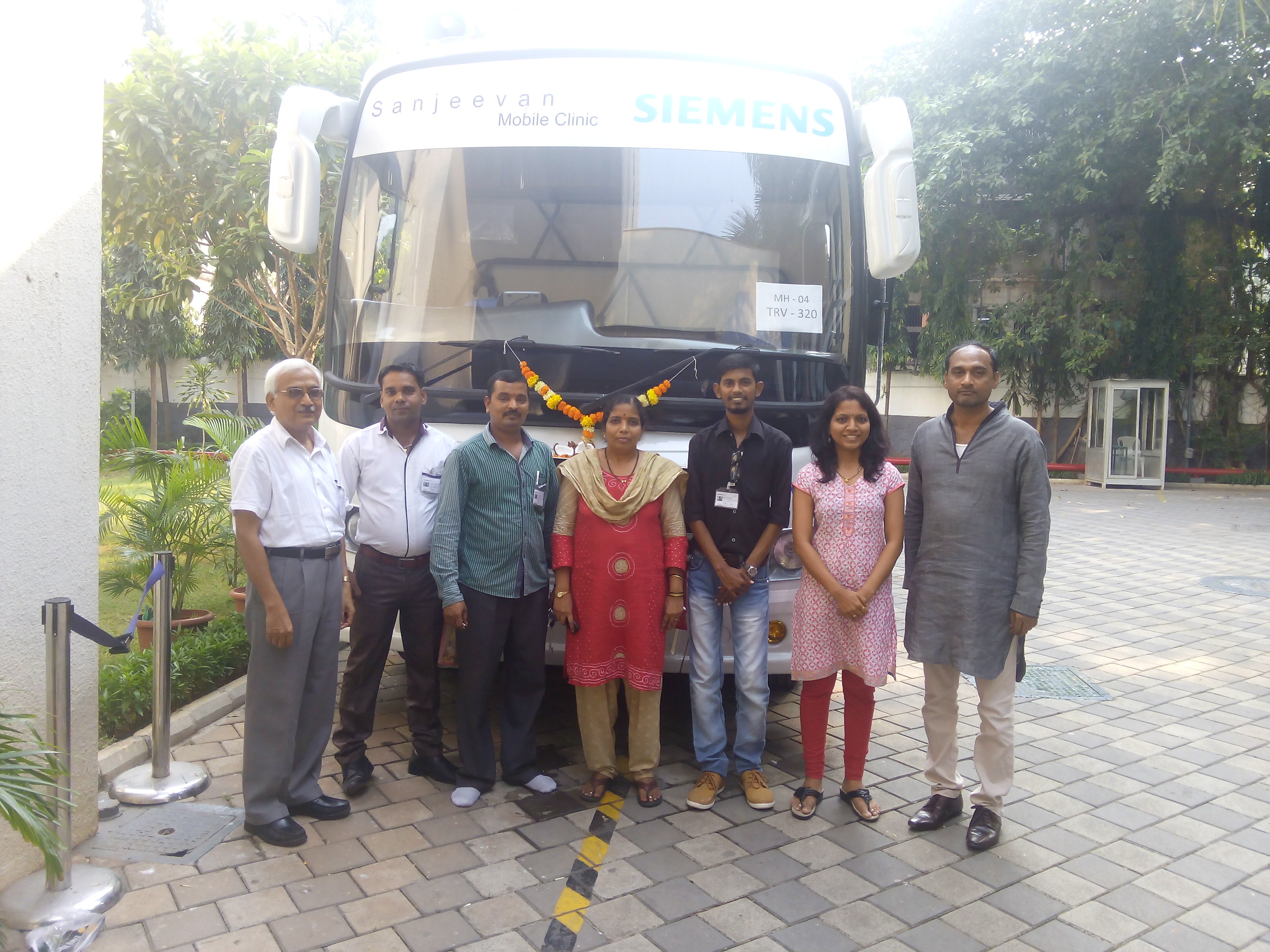
Kanchan says that the project focuses on providing antenatal and postnatal care, especially referring women with complicated pregnancies to tertiary and secondary centres. “We offer folic acid supplementation, and perform abdominal and Doppler scans to pregnant women. We also mobilise young mothers on topics such as breastfeeding and immunization, to increase health-seeking behaviour and link them to Government services. Counselling services on family planning are also available,” she says.
A positive outcome from the Sanjeevan mobile clinic initiative has been recognition by the Municipal Corporation. Identifying the health needs of the community, officials are looking for their solutions. The Municipal Corporation has begun collaborative health camps, alongside SNEHA, in the vulnerable pockets. “We have had 11 camps, in partnership with KDMC, since 2016. 250-300 people attended each camp,” says Kanchan. “These camps are largely for screening of common and epidemic illnesses. But they may also include a mix of specialist services such as dermatology, dentistry, and ophthalmology,” she adds.
To learn more about SNEHA and to donate, please visit the website.
Like this story? Or have something to share? Write to us: [email protected], or connect with us on Facebook and Twitter.
NEW: Click here to get positive news on WhatsApp!
If you found our stories insightful, informative, or even just enjoyable, we invite you to consider making a voluntary payment to support the work we do at The Better India. Your contribution helps us continue producing quality content that educates, inspires, and drives positive change.
Choose one of the payment options below for your contribution-
By paying for the stories you value, you directly contribute to sustaining our efforts focused on making a difference in the world. Together, let's ensure that impactful stories continue to be told and shared, enriching lives and communities alike.
Thank you for your support. Here are some frequently asked questions you might find helpful to know why you are contributing?


This story made me
-
97
-
121
-
89
-
167



